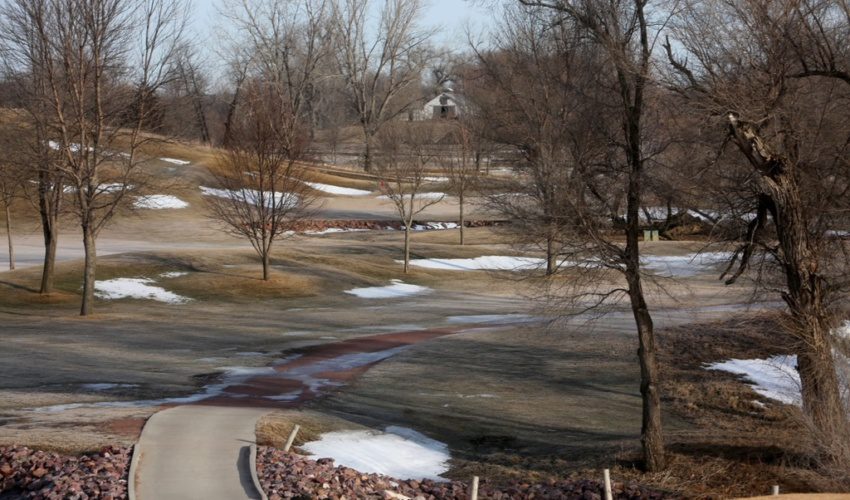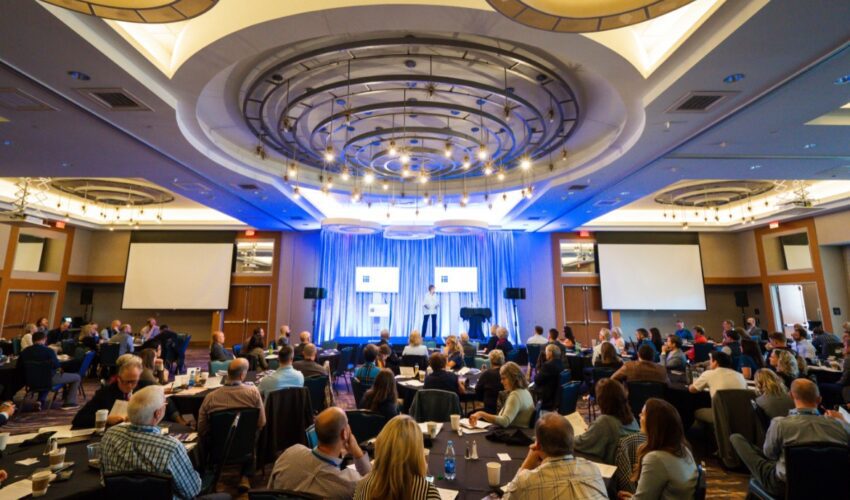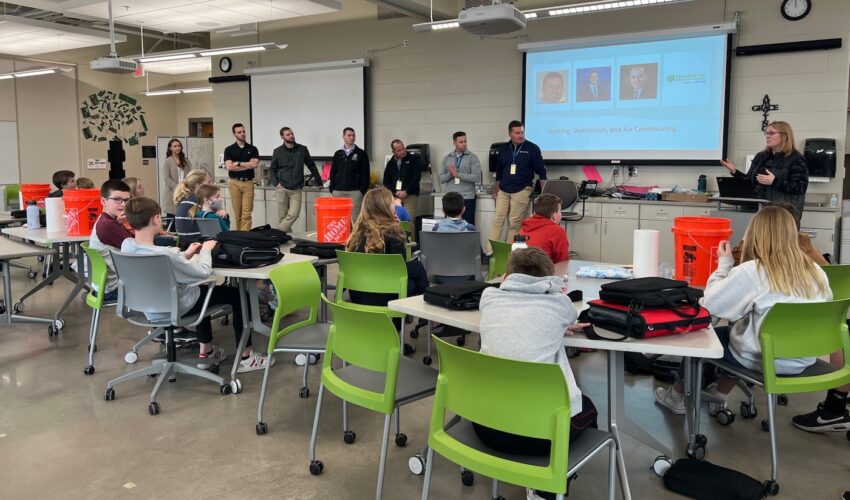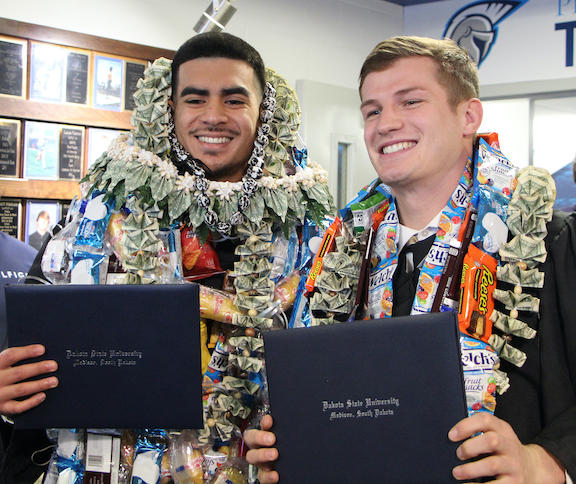Student-athletes fuel diverse workforce pipeline
June 22, 2022
This paid piece is sponsored by Dakota State University.
For those keeping score, the total number of Dakota State University student-athletes and the variety of programs they are studying are both rising.
Jeff Dittman, athletic director, said that in 2014 there were 242 student-athletes on campus, and by 2021, that had grown to 491. This is about one-third of the student on-campus population.
“Student-athletes are a very important demographic for us,” Dittman said. “A lot of high school athletes love playing sports. If they’re given the opportunity to continue their career at a new competition level, they will take advantage of that.”
Student-athletes Jason Sakamoto and Noah Guse celebrate their graduation in December 2021.
Some of this increase Dittman attributes to the addition of developmental, or junior varsity, teams and to the addition of esports in 2019, which alone has added about 100 students to the rosters for the Trojans.
Student-athletes also come to major in the cyber-centric or pre-professional programs. For years, they typically have studied business, education or exercise science, and many students still major in these programs. But over the past five years, university data show that students who play on DSU’s teams increasingly are majoring in technology degrees such as cyber operations and computer science.
There are about four times as many computer science majors over the past three years, compared to 2014-16. Cyber operations majors have numbered in the upper 70s for the past three years, up from the low teens in the previous four years. Cyber leadership and intelligence, a program first offered in 2018, was the major for 24 student-athletes this past year.
One might assume all the technology majors are on the esports teams, but that’s not the case. For example, Dittman said, there are five students majoring in artificial intelligence, but none are esports athletes; they are participating in football, and track and field.
Student-athletes also are earning degrees in one of the 13 pre-professional programs at DSU. With a degree in integrated biology, for example, students can move on to careers fields such as accelerated nursing or veterinary medicine.
Because of DSU’s small class sizes, these students often have opportunities to participate in undergraduate research, which benefits them when they apply to graduate school or pre-professional programs. Case in point is Conner Tordsen, a two-sport athlete who this spring became the first DSU hammer throw athlete to be named an All-American at the NAIA National Track & Field Championship. He also has extensive research experience with aphanomyces, or alfalfa root rot, which was a benefit when applying to dental school.
Conner Tordsen has been a student researcher and became the first DSU athlete to be named an All-American in the hammer throw at the NAIA National Outdoor Track & Field Championship in May.
Academics and athletics make for busy students, but statistics show that because student-athletes participate in goal-oriented programs, they have a higher retention rate, higher GPAs than the general student population and higher graduation rates.
“They are self-motivated, goal-oriented people who can work on a team and are used to being coached. Those are the skills that a lot of companies look for,” Dittman said, and this is good news for employers.
Not only does it provide a larger candidate pool for a wider variety of companies but also these individuals are quality employees, who tend to fare better in life after college, Dittman said.
He added that in addition to subject-matter knowledge and a background in technical skills, these students also exhibit desired soft skills such as communication, good work habits and the desire to achieve.
He emphasized the impact Dakota State coaches have on their student-athletes’ success, a result of the mentorship role they take on with their team members.
DSU coaches, including women’s basketball coach David Moe, work to make sure students succeed on and off the court.
“The coaches work to make sure the student-athletes are successful athletically, academically and socially,” Dittman said, because “if they’re not happy in one of those categories, they will probably not be successful in either of the other two.”
This model, in which athletics and academics work closely together, is one that most small schools around the country use to help their students be successful, he added.
Moving forward at DSU, Dittman predicts that the planned new athletics facilities could increase student numbers through potential new sports such as soccer, golf or iRacing; this option may be one factor that could grow participation of online student-athletes and may contribute to the possibility that one day the university may have equal numbers of esports to traditional sports student-athletes.










